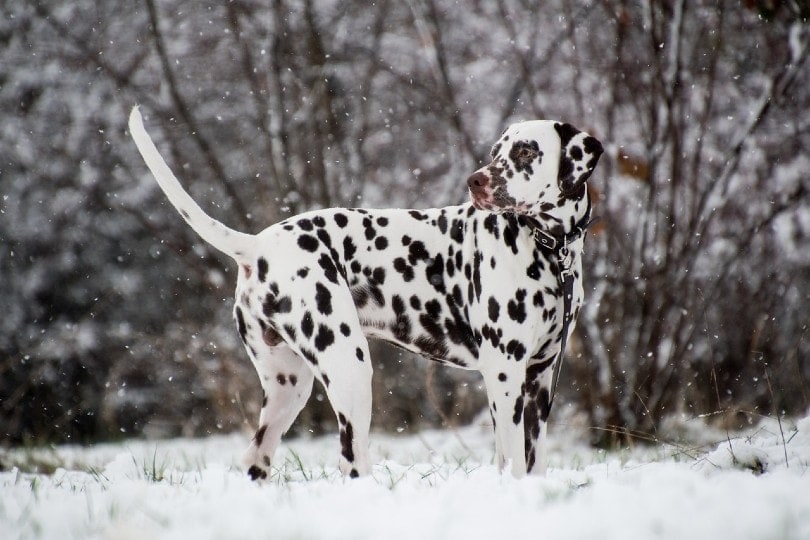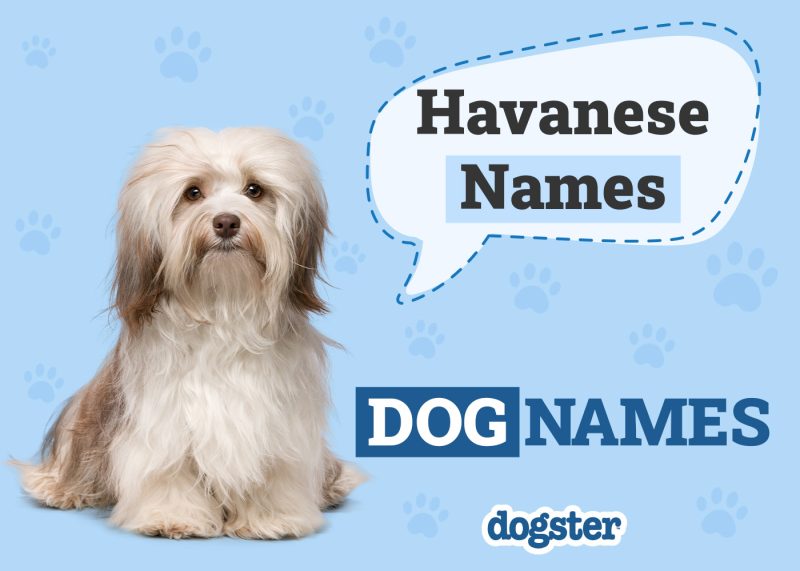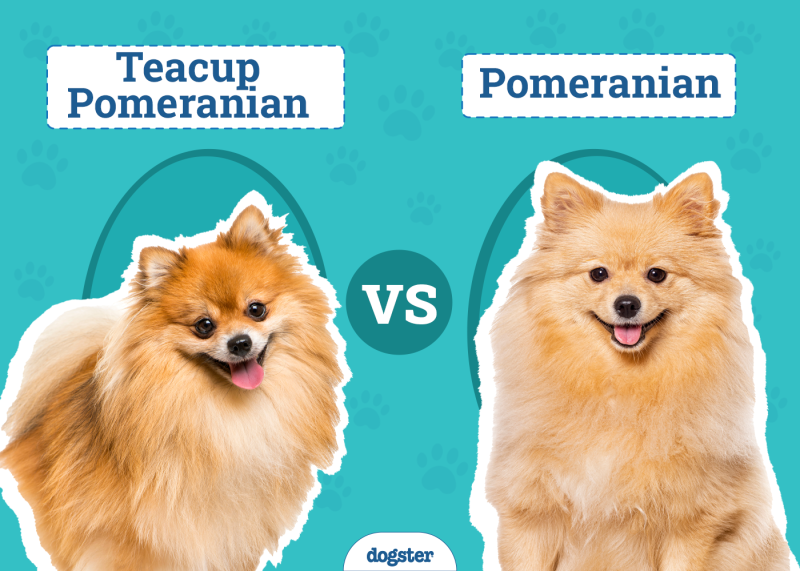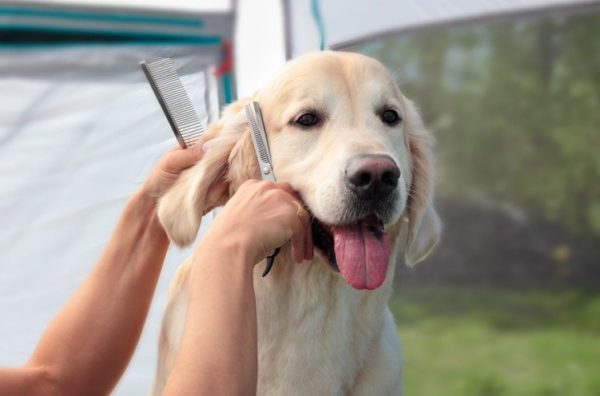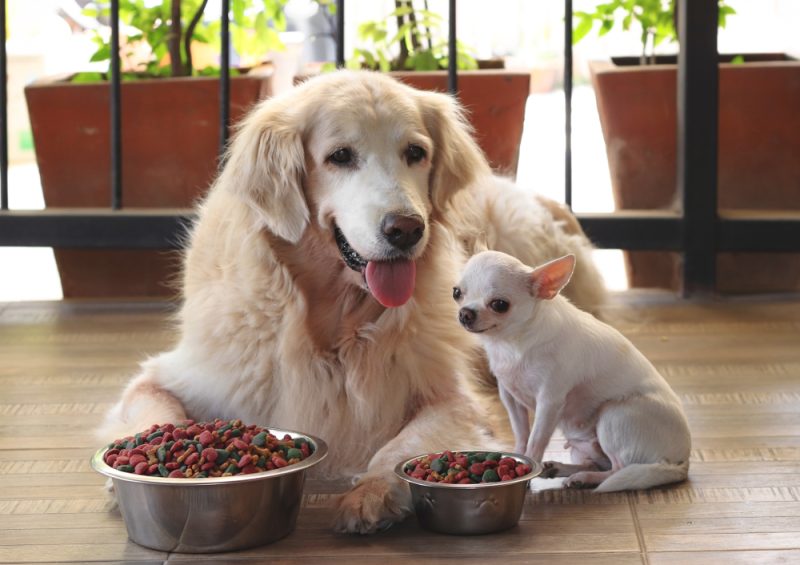In this article
Dalmatians are iconic dogs that have worked in a large variety of professions over the centuries. They started as carriage dogs riding alongside horses and protecting wagons. Then they became circus dogs and firehouse mascots. Finally, Disney immortalized them on the big screen with 101 Dalmatians. Dalmatians continue to be popular and recognizable dogs. But they do have some pros and cons that need to be unpacked.
Here are 10 pros and cons that you should know about before getting a Dalmatian.

The 6 Dalmatian Pros
1. They Make Great Alert Dogs
Some people like dogs that make them feel safe. Dalmatians may not look particularly robust, but they do make great alert dogs. Alert dogs will generally bark when strangers are nearby. They may also alert you to things that are amiss, like animals outside, an unfamiliar car in the driveway, or strange noises after dark.
This makes people feel safe, knowing that if something is going on, their dog will let them know about it. Dalmatians do not necessarily make great guard dogs, but they are great alarm or alert dogs.
2. Dalmatians Are Highly Energetic
Dalmatians are very high-energy. That is a pro for most people (but it can also be a con if you want a lazy dog). This makes Dalmatians perfect for active people or for busy families that spend a lot of time outside. Dalmatians love going for long walks, going on hikes, or playing outside with other dogs. That makes Dalmatians very fun, and they can seamlessly blend with families who like to take their dogs on adventures.
Dalmatians can help keep people active with their exercise needs. However, if you can’t afford to spend hours a week walking or playing with your dog, due to a busy work schedule, this could be a downside.
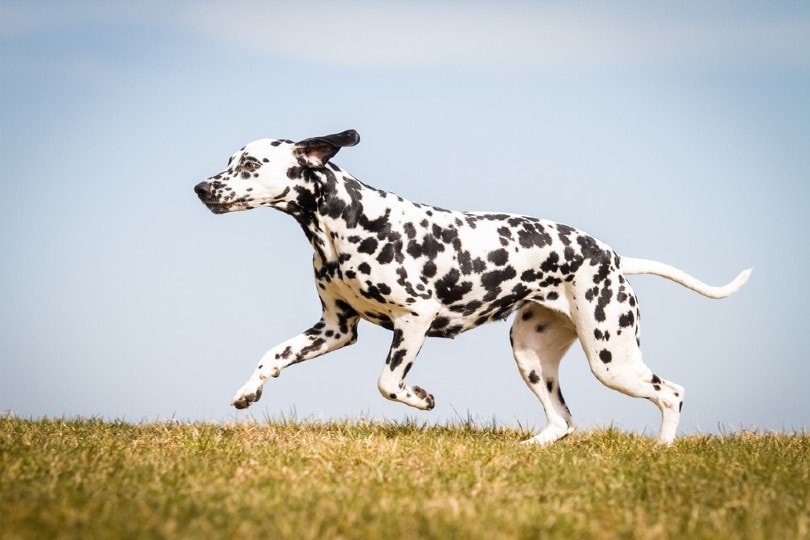
3. Dalmatians Require Little Grooming
Dalmatians have short and sleek coats. They require very little in the way of grooming. Dalmatians can benefit from some light brushing during the shedding seasons (spring and autumn) to reduce the amount of loose fur coming off the dog. Otherwise, Dalmatians will easily keep themselves looking their best.
They don’t require clipping or regular bathing unless they get into something dirty. Dalmatians are pretty fastidious when it comes to their personal hygiene and cleanliness which makes caring for them easier than some other breeds of dogs.
4. They Don’t Drool Much
Unlike some breeds of dogs, mostly large and giant ones like Newfoundlands and St. Bernards, Dalmatians don’t typically drool. They produce an expected normal amount of drool, usually as the dog is expecting their dinner or a tasty treat, but this will mainly go unnoticed. You certainly don’t need to worry about wiping the drool off their face or your clothes.
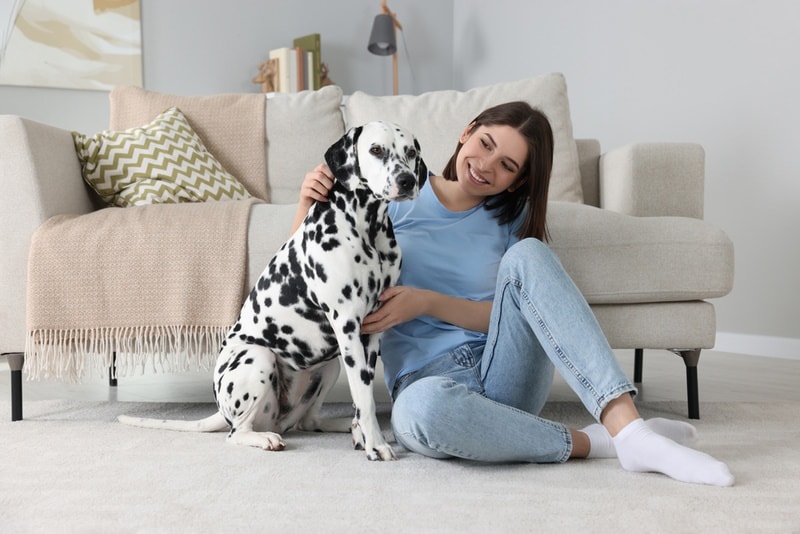
5. They Make Great Family Dogs
Dalmatians are loyal and energetic, and they make fantastic family dogs. Dalmatians can become lifelong companions for individual owners and families. Dalmatians are usually great with kids, but this will be influenced by their socialization and training. They are also perfect for active people or families.
Kids who like to play with their dogs, spend time at the dog park, or go on long walks, hikes, or adventures will find a lot to love with a Dalmatian. A well-trained and socialized Dalmatian will be a phenomenal family member for many years. Still, dogs should always be supervised around young kids, just in case.
6. Dalmatians Are Often Good with Other Pets
If properly socialized, Dalmatians are generally very good with other pets. They get along with other dogs and are quite open to strangers, but this will greatly depend on their early experiences as puppies and how they were socialized. They can even get along with small animals like cats if adequately trained from a young age. Dalmatians need to be properly introduced to other family pets, but once they are introduced and settled in, Dalmatians will make great companions.
This adds to the Dalmatian’s value as a family dog. Dalmatians can blend seamlessly with families that include other pets with very few issues.
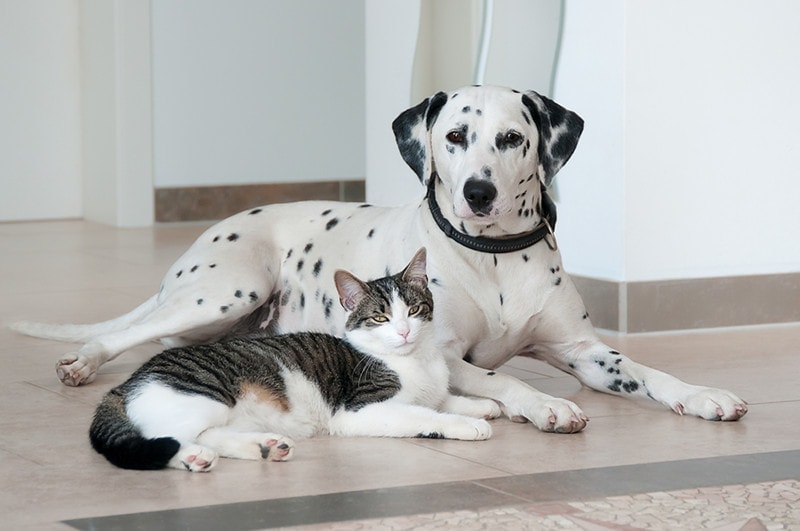

The 4 Dalmatian Cons
7. Dalmatians Shed…A Lot
While Dalmatians have short coats and require little regular grooming, they do shed quite a bit. Dalmatians’ hair is short and smooth and can be easily noticeable around the house. Like most other dogs, Dalmatians tend to shed the most during spring and autumn.
Brushing can help collect the amount of hair your dog would shed, but it will not stop the shedding completely.
8. Dalmatians May Bark
Most dogs will bark; let’s be honest, they’re dogs. Dalmatians are somewhere in the middle of the barking scale, from non-barkers to very barky dogs. This can be a pro or a con, depending on how you see it. Barking helps alert owners to strangers or unfamiliar noises, while some dogs may become excessive at it for no apparent reason. This will greatly depend on the dog’s individual character, experiences, and training, and not all Dalmatians will bark as much.
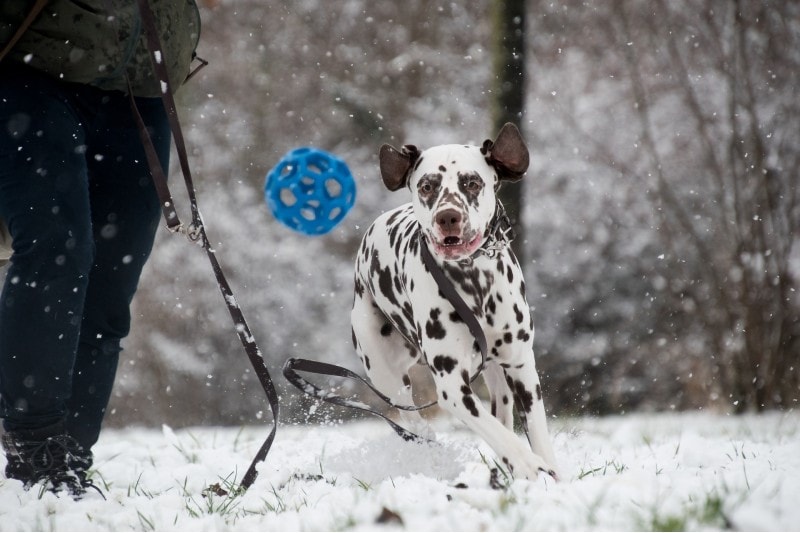
9. They Can Be Strong-Willed
Generally speaking, Dalmatians are quite eager to please and they can be trained easily. Some Dalmatians can be stubborn, but again, this depends on their character, early socialization, and training methods. They could be more challenging to train than other breeds, especially for inexperienced dog owners, although their trainability level is considered high. Dalmatians can be wily and smart, which can be a good thing in some situations. It can be a bad thing if they use these traits to be obstinate.
Socialization and training based on positive reinforcement should start from an early age or when you first get your puppy. It’s important to introduce them to a large number of situations, including car rides, the veterinarian’s office, the dog park, other dogs and pets, strangers, and different walking paths.
If you do not socialize your Dalmatian properly, they may become protective, fearful, or shy. Socialization is extremely important, and if you are not prepared or equipped to deal with it, you can end up with behavioral problems with your Dalmatian down the road.
Some Dalmatians may require professional training and an experienced owner.
10. Dalmatians Suffer from Certain Health Issues
Dalmatians are prone to certain health issues, such as hypothyroidism, congenital deafness, urate urinary stones, idiopathic epilepsy, and atopic dermatitis among others. A gene mutation that causes high levels of uric acid being excreted in the urine of Dalmatian dogs, also called hyperuricosuria, that may lead to the formation of urate urinary stones, has been identified by a team of researchers from the School of Veterinary Medicine at the University of California, Davis. This trait has long been present in Dalmatian dogs and these new findings can now be utilized to find ways to avoid this trait being inherited further, through genetic testing and careful breeding.
Reputable breeders should screen all their breeding dogs for potential signs or predisposition for various health issues. It is important to know about Dalmatian health problems before you decide on getting one so you are prepared to care for them no matter what.


How Much Do Dalmatians Cost?
If these pros and cons seem acceptable to you and you are curious about getting a Dalmatian, you will have to budget for the cost. A purebred Dalmatian can cost anywhere from $800 to $2,000 or more. Reputable breeders will often charge more than standard breeders.
The more breeders screen and test for potential problems, the more money they will have to pay for the tests, which will raise the cost of the dog. All things considered, Dalmatians are not that expensive. Some other purebred dog breeds can go for well over $1,200 on average.

Final Thoughts
Dalmatians have a very even pro and con split. They are energetic, loyal, family-oriented, and fairly eager to please their owners. But they need lots of mental stimulation, which means they thrive with an experienced dog owner. They don’t require a lot of grooming, but they do shed a fair amount. Dalmatians have the potential to make great dogs, but they also come with some downsides that you need to be aware of before deciding to get one of your own, some of them being the health issues they may suffer from.
See Also:
Featured Image Credit: Rebecca Scholz, Pixabay

